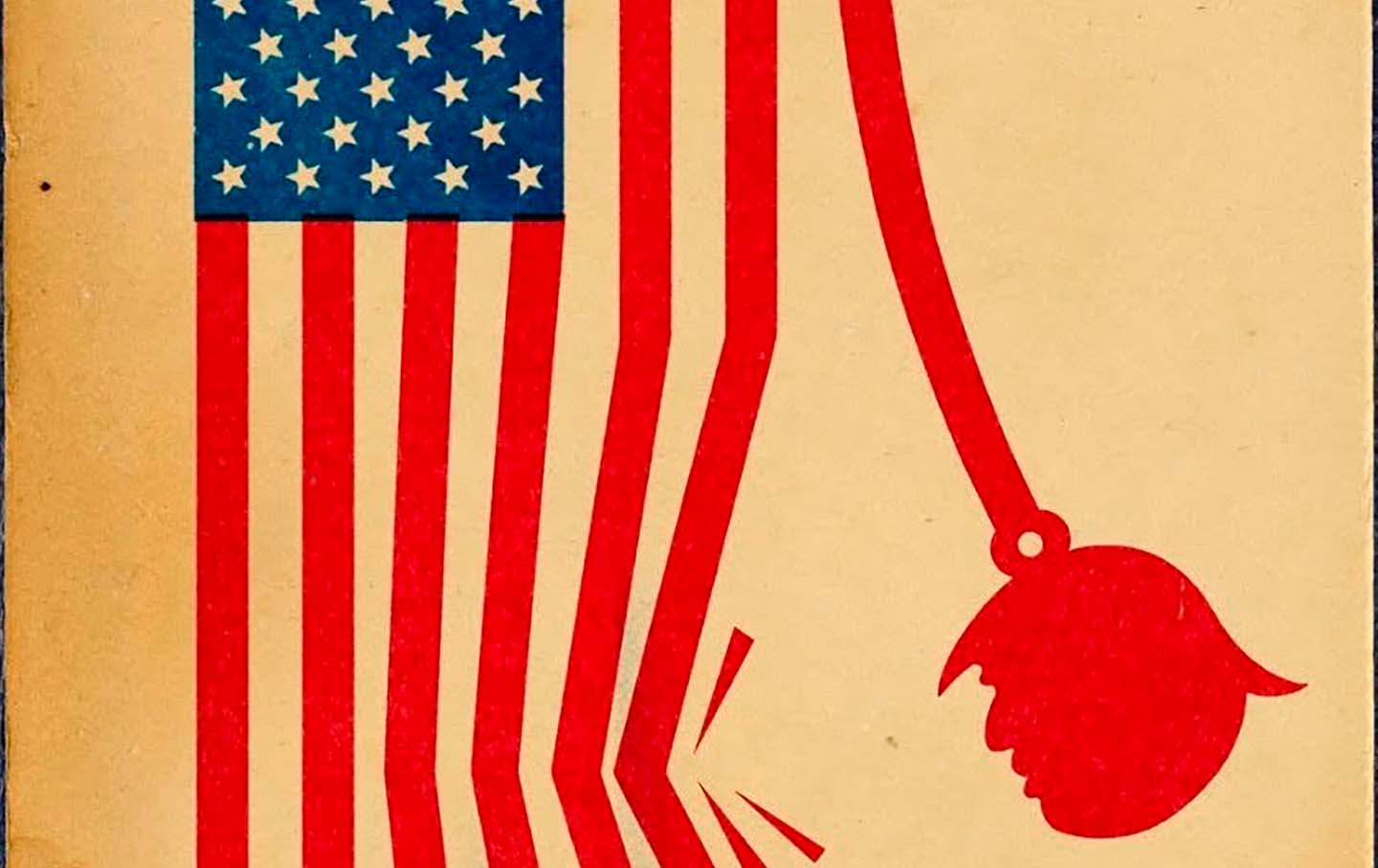No, Josh Shapiro Wasn’t Snubbed for VP Because He’s Jewish
Republicans and some journalists are pushing the cynical and false narrative that antisemitism doomed Shapiro’s candidacy.
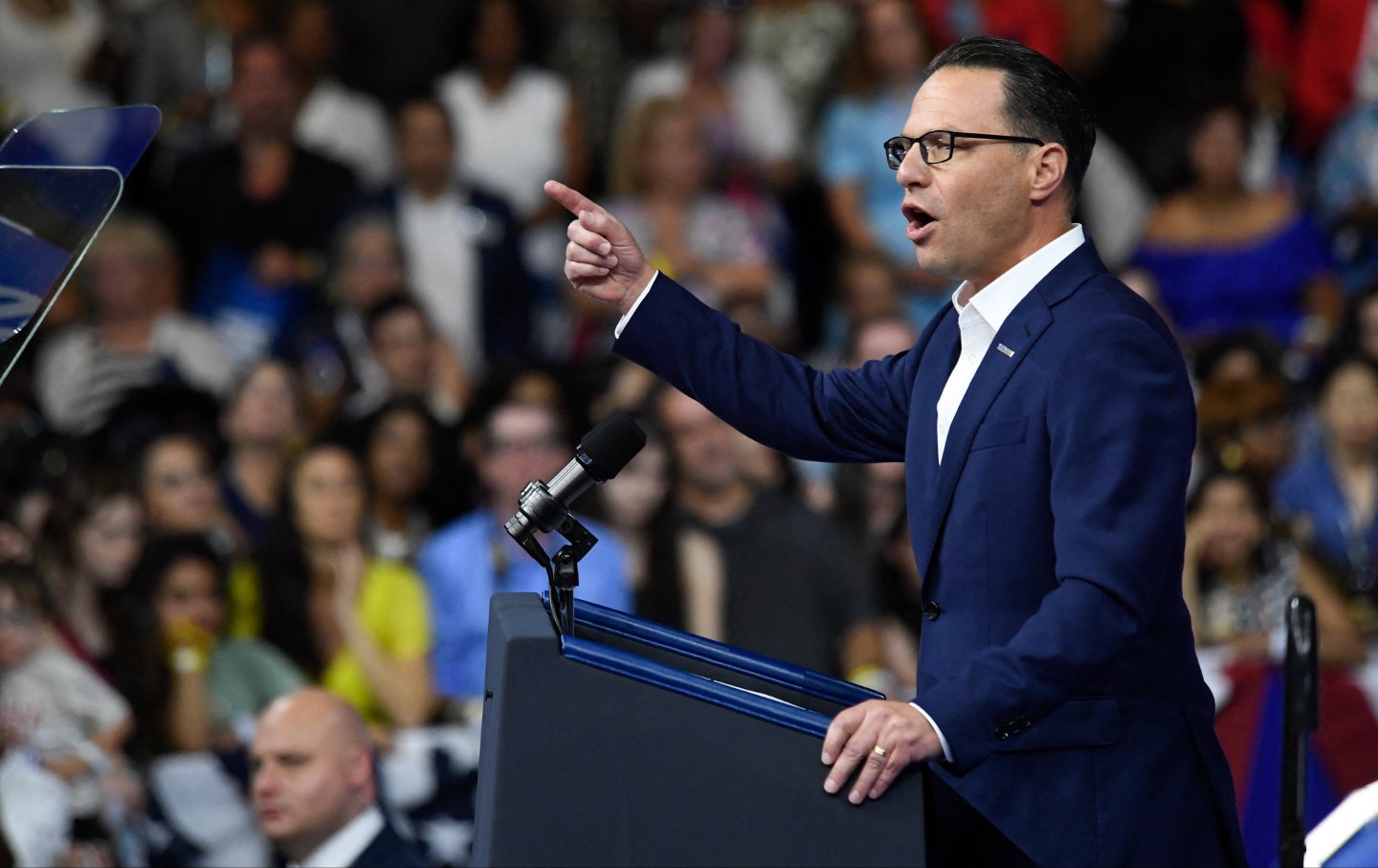
Governor of Pennsylvania Josh Shapiro speaks at a rally for Kamala Harris and new vice presidential candidate Tim Walz in Philadelphia on August 6, 2024.
(Matthew Hatcher / AFP via Getty Images)On Tuesday, Vice President Kamala Harris announced that she was picking Minnesota Governor Tim Walz as her running mate. This meant that she was not picking Pennsylvania Governor Josh Shapiro, who is Jewish, and who had drawn the ire of progressive critics during the two weeks of veepstakes over his support for Israel and attitude toward anti-Israel protesters.
After the news of Harris’s decision broke, people began speculating about why Shapiro had been snubbed. One theory quickly gained traction: that his Jewishness had doomed him.
The New York Times offered, “Vice President Kamala Harris faced a difficult choice when it came to Israel and her running mate: Selecting Gov. Josh Shapiro of Pennsylvania could mollify many Jewish voters and other centrists over a subject that has bedeviled the Biden-Harris administration for nearly a year, Israel’s war in Gaza,” and argued that antisemitism was surging on the left. On CNN, Van Jones spoke of “antisemitism that has gotten marbled into this party” and asked “how much of what just happened is caving into these darker parts of the party.”
Republicans were all too happy to take this line and run with it, with former US President and Republican presidential candidate Donald Trump telling Fox News that he had “very little doubt” that Shapiro wasn’t chosen “because of the fact that he’s Jewish, and they think they’re going to offend somebody else.”
Let us, for a moment, put aside that, in this same interview, Trump once again said that American Jews who don’t vote for him—which, to this point, has been roughly two-thirds of American Jews—should have our “heads examined.” Let’s ignore Trump’s long history of pushing antisemitic conspiracy theories related to Hungarian-born billionaire philanthropist George Soros; his history of embracing white nationalist figures and Holocaust deniers. and that he reportedly praised Adolf Hitler. And let us move on from the fact that, if not picking a Jewish running mate means a person is antisemitic, Trump, too, is guilty of that charge, since his running mate is JD Vance, who is Catholic.
Let us do this so that we can focus on the story that not choosing Shapiro was an act of antisemitism. And it is just that: a narrative, one as cynical as it is fictional.
Firstly, by all accounts, the reason that Harris chose Walz over Shapiro is that she thought Walz would be a better fit with and for her. He was reportedly charming and, importantly, more deferential in his interview, whereas Shapiro, per one account, seemed to be negotiating the parameters of the job. It is not difficult to understand why a person who is running for president instead of her older boss might take the person who says he has no greater ambitions over the obviously extremely ambitious person who is 10 years her junior.
But secondly, while I do not doubt that there were some people in this wild and varied country of ours who did not prefer Josh Shapiro because he was Jewish, I have to note that, to the extent that Shapiro was criticized from the left, it was not only for his support for Israel—as some noted, all of the candidates under consideration support the state to varying degrees (though, in fairness, critics of Israel might feel differently about someone who volunteered for the Israeli military and worked briefly for the Israeli Embassy)—but because the place where he stood out was where support for Israel bumped up against American democratic principles.
It is true that all of Harris’s VP finalists support Israel; but it is not true that all of them called for a university president to be fired, or appeared to liken campus protesters to the KKK, or urged law enforcement to be sent in to break up protests. (In the interest of full disclosure, I wrote a piece expressing concern that picking Shapiro could undercut Harris’s message of freedom, since freedoms of expression and assembly are core to the American project. I am Jewish, and while I know some might consider this a self-hating argument, I do not. I am also quite confident that this essay was not why Harris picked Walz.)
In other words, it wasn’t on the matter of Israel that Shapiro was seen as more concerning; it was on the matter of our own democracy. (Although, to Eli Cook, a senior lecturer at the University of Haifa, writing in the Israeli outlet Haaretz, it was also about Israeli democracy: Shapiro had accepted money from Jeff Yass, who also reportedly donated to Kohelet, the think tank behind Israeli Prime Minister Netanyahu’s judicial overhaul.)
A politician shouldn’t be put under extra scrutiny because they’re Jewish, but neither is Jewishness a reason not to scrutinize their positions, particularly on as important an issue as Gaza.
It is also perhaps worth noting that, before news broke that Walz was the pick, certain right-wing pundits were saying that Shapiro was attempting to scrub away his Jewishness after he tried to offer context for an article he wrote when he was 20 in which he described Palestinians as “battle-minded” (the context was that he was 20). For example, right-wing podcaster Ben Shapiro tweeted, “Josh Shapiro desperately trying to un-Jewish himself to make himself sufficiently palatable to the pro-Hamas wing of the Democratic Party. Pathetic,” suggesting that, even if Shapiro had been the pick, conservative voices would still have said that the Democratic Party is full of antisemites and their Jewish enablers, by which, again, they mean the majority of American Jews.
I can understand that some American Jews might be disappointed that Shapiro wasn’t picked. It can be exciting to see parts of yourself represented by political figures; American Jews have been in this country since before it was a country, and I can see how some or many American Jews would be thrilled that, after all those hundreds of years, a person who is so proud of his Jewishness might live at Number One Observatory Circle, closer than any Jew has ever been to the presidency. The only other Jewish running mate on a major party ticket in American history, Joe Lieberman, lost; I can understand the excitement that maybe this time would be different and Shapiro would win.
But there is simply no evidence that antisemitism was the reason Walz was the pick and Shapiro wasn’t. And it is dangerous and counterproductive to the fight against antisemitism to pretend otherwise. Antisemitism is a real force in American politics and life today. It’s shown up everywhere from shooters’ manifestos to politicians’ tweets to Jewish cemeteries vandalized with swastikas. There’s no need to pretend that it’s also responsible for a person’s not getting a job. There’s no need to go along with those who decry antisemitism in one breath and peddle it in the next. And there’s no need to embrace a bad-faith narrative pushed by the Republican Party, which spreads antisemitism while claiming to care about the fight against it.
Popular
“swipe left below to view more authors”Swipe →More from The Nation
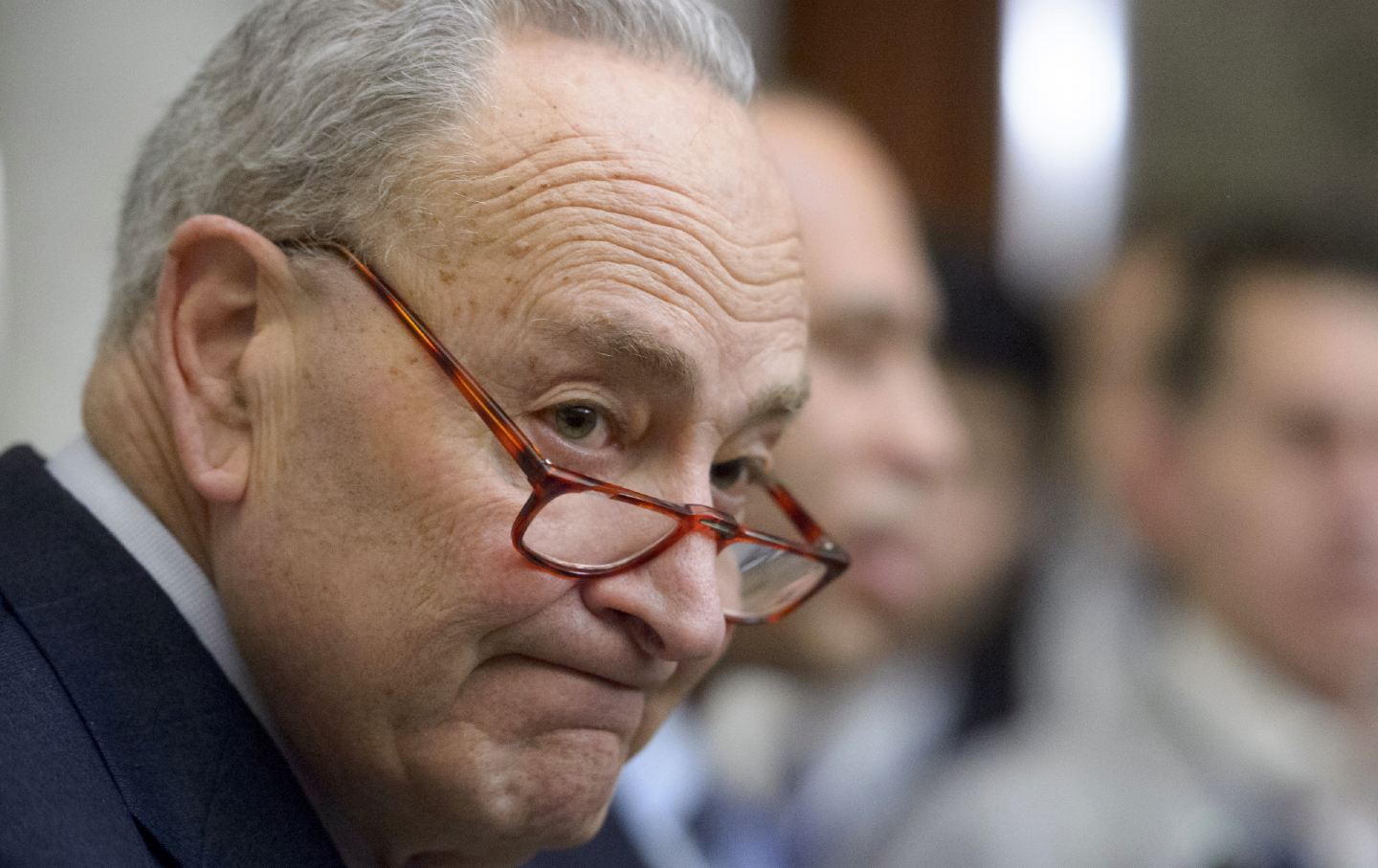
Why Democrats Won’t Throw a Real Punch Why Democrats Won’t Throw a Real Punch
Faced with existential threats from the right, the Democratic leadership remains timid; faced with demands for justice from the left, it goes on the attack.
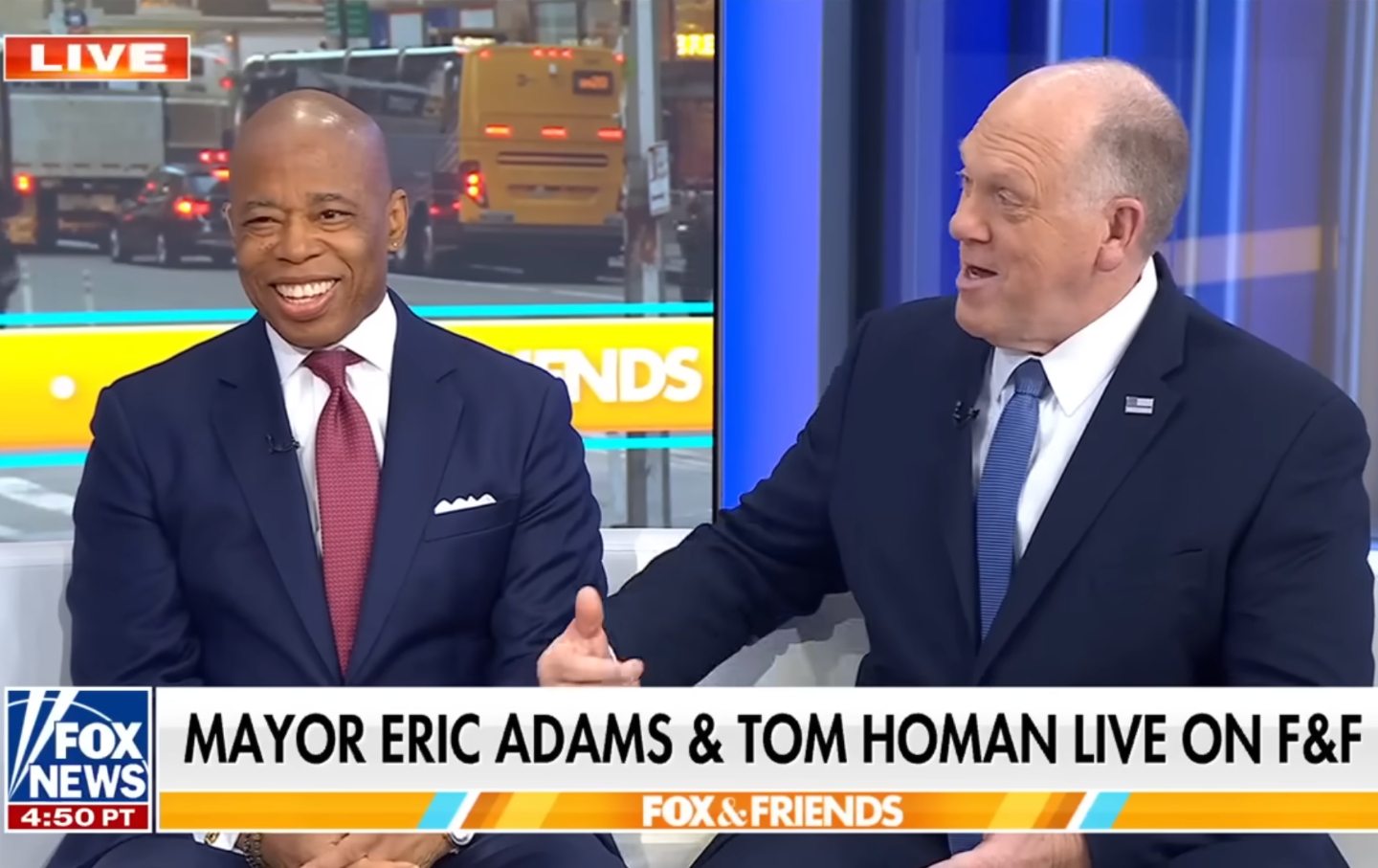
Eric Adams Is a Fascist Collaborator Eric Adams Is a Fascist Collaborator
By cutting a raw deal with the Trump/Musk regime, the mayor is attacking the very fabric of New York City.
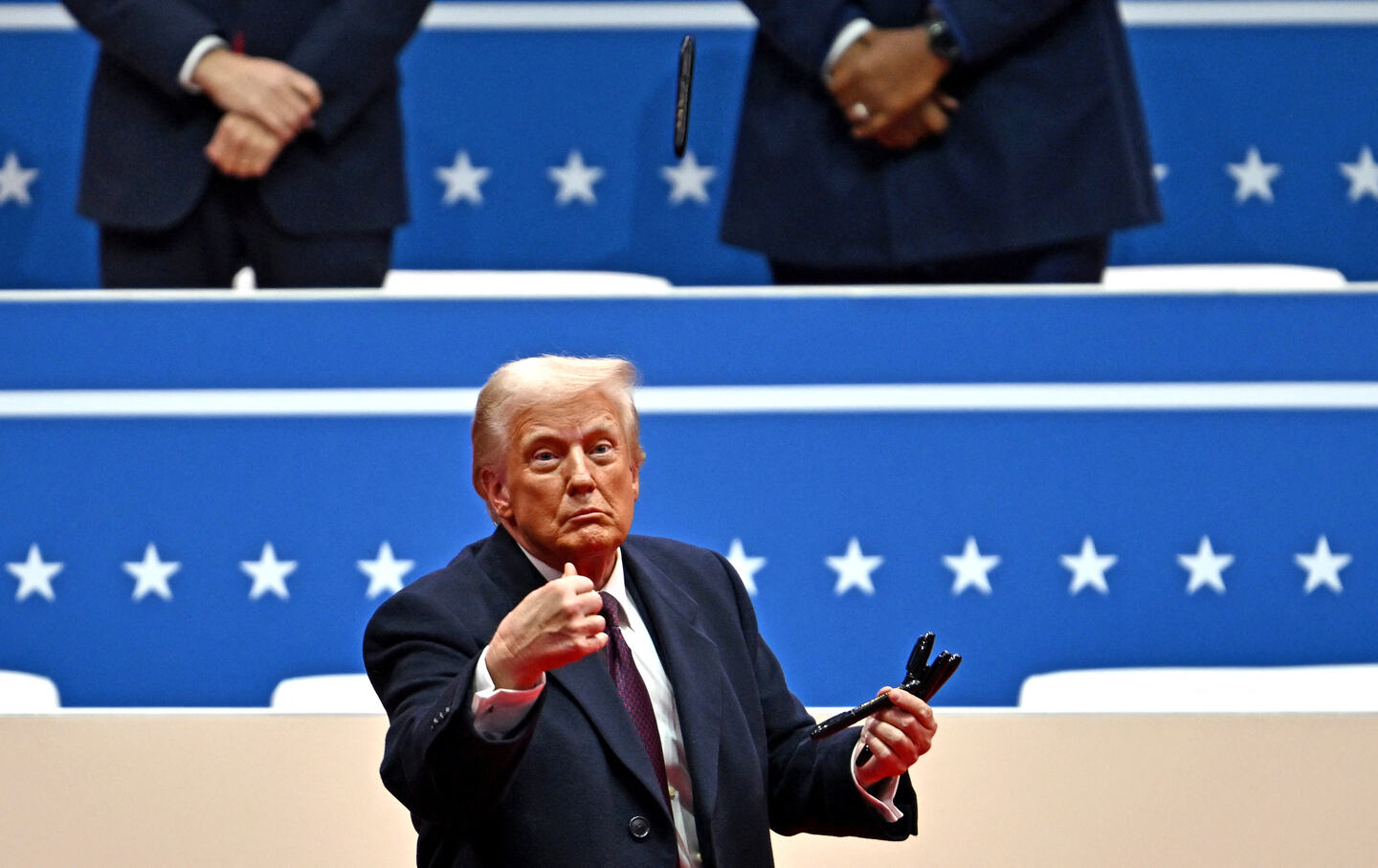
David Cole on How the Courts Can Stop Trump David Cole on How the Courts Can Stop Trump
The former national legal director of the ACLU analyzes recent efforts to block the president’s executive orders.
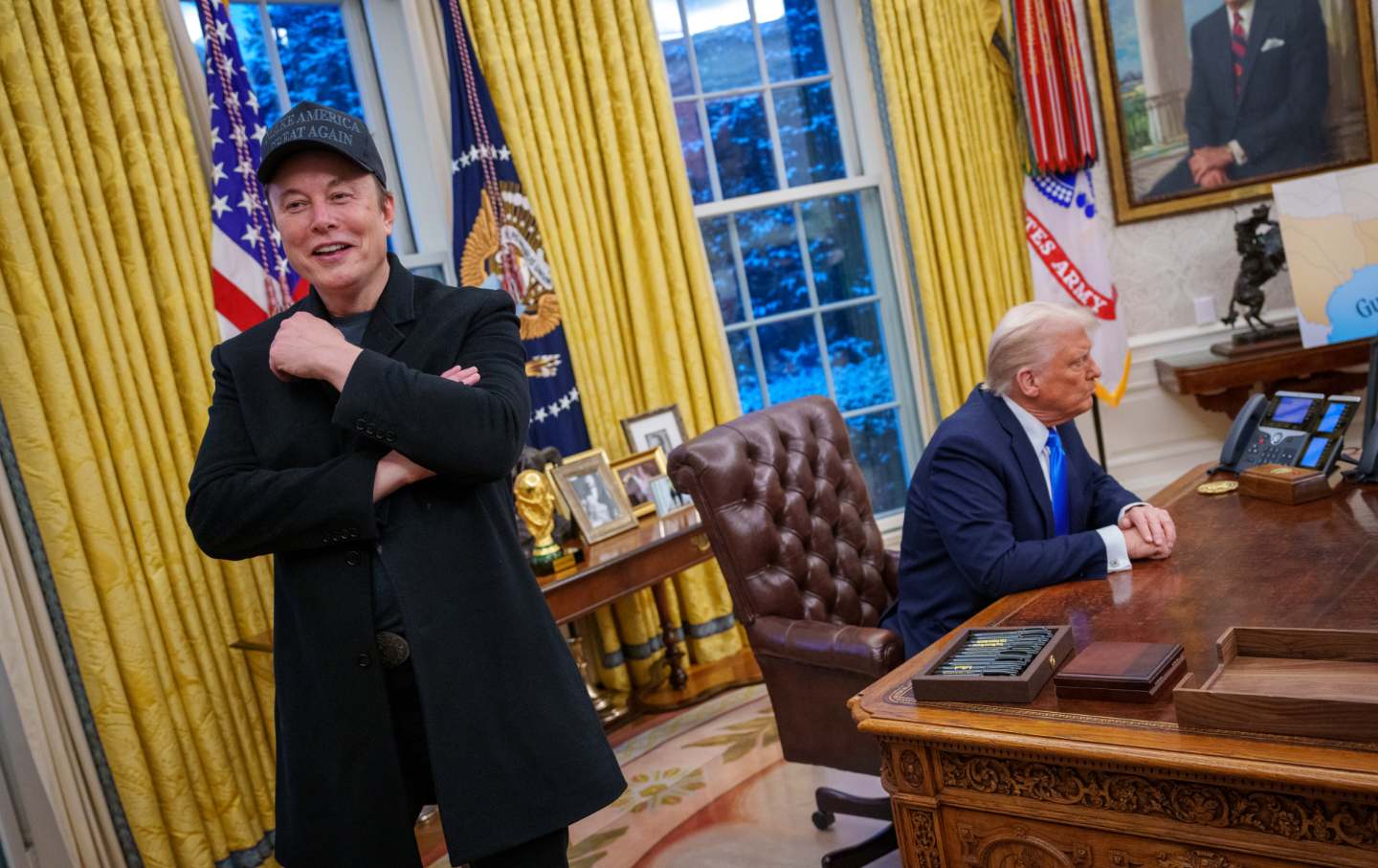
DOGE Is a Massive Scam—Even on Its Own Terms DOGE Is a Massive Scam—Even on Its Own Terms
Even if you believe that Musk is trying to root out waste and fraud (and you really shouldn't), he and his dweeby hatchet bros are only making things more corrupt and expensive.

NYC Mayoral Candidate Zohran Mamdani Wants You to Have More Money in Your Pocket NYC Mayoral Candidate Zohran Mamdani Wants You to Have More Money in Your Pocket
The New York State Assembly member explains how free buses, free childcare, a rent freeze, and city-run grocery stores would make life easier for working-class New Yorkers.

